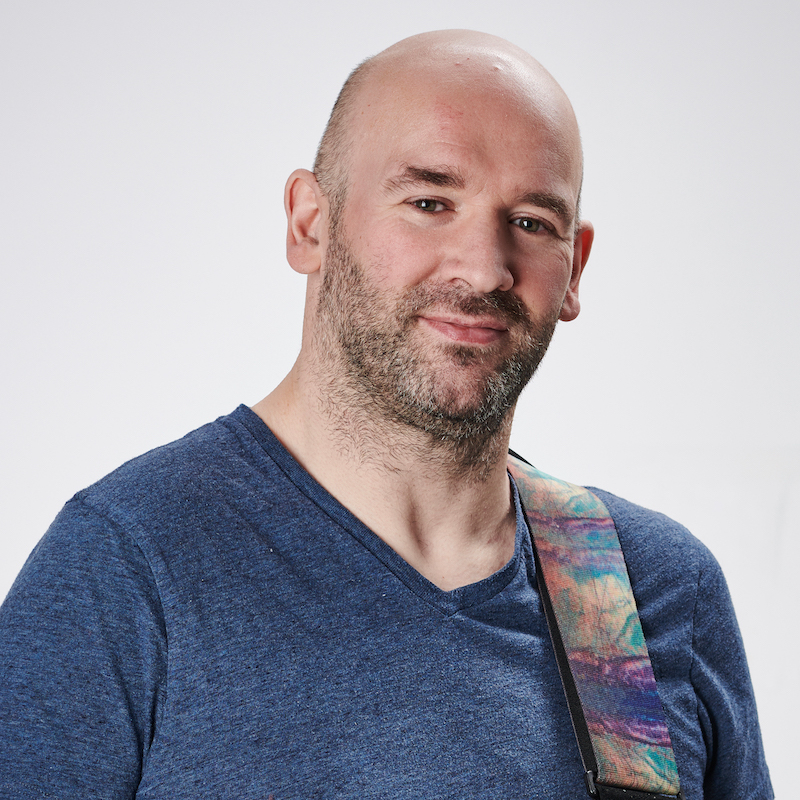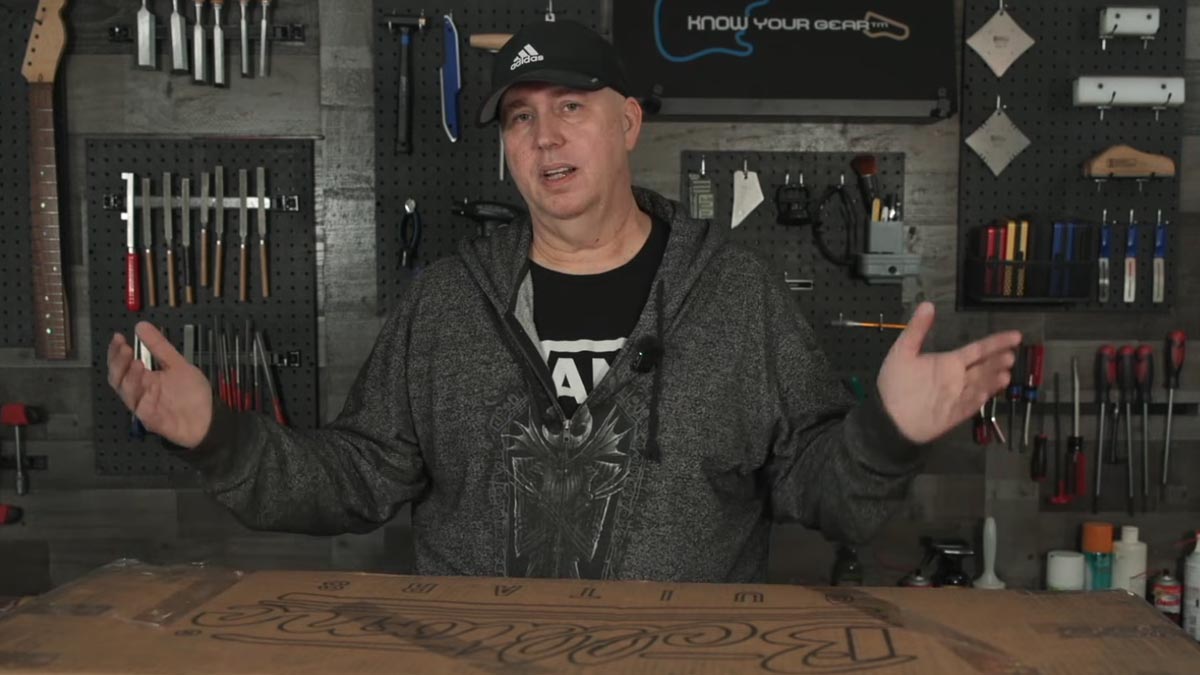Brian May goes deep on Bohemian Rhapsody: the gear, the solo and the magic of Freddie Mercury’s finest hour
In a Total Guitar exclusive, the Queen guitarist reflects on BoRhap's legacy and how its orchestral majesty came together
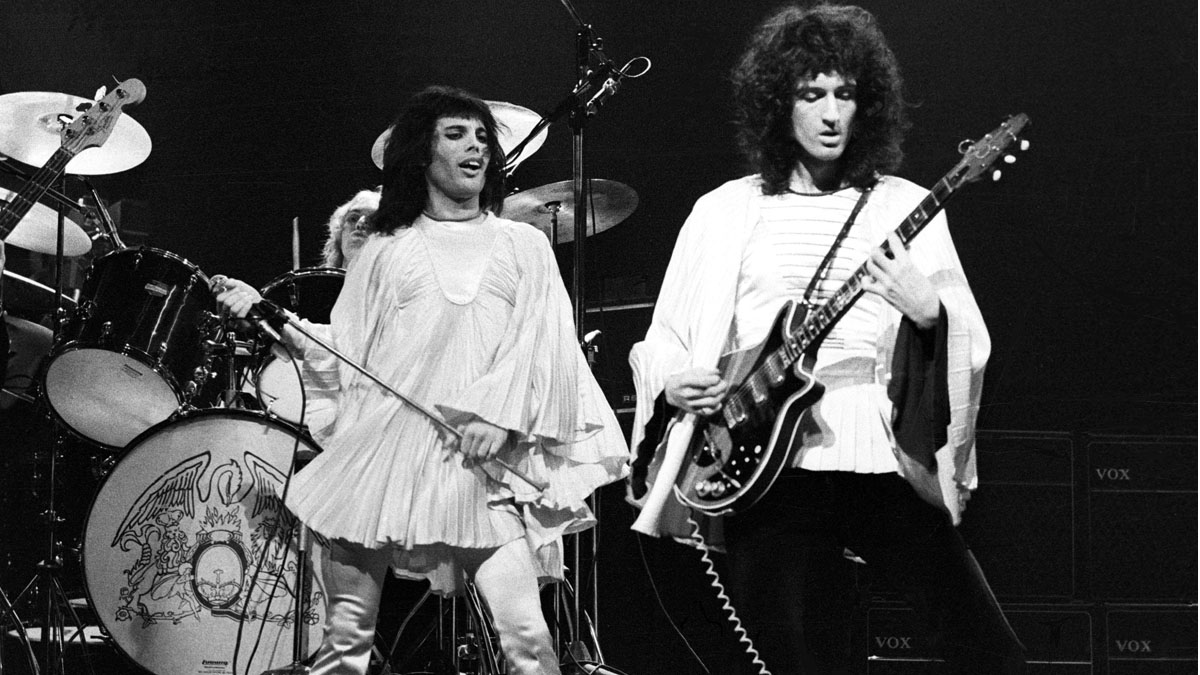
Perhaps it was to be expected that the guitarist who topped Total Guitar's poll for the greatest rock guitarist of all time should have written and performed our readers' favourite solo, with the majestic, operatic genius of Bohemian Rhapsody taking top spot as best guitar solo of all time.
It feels appropriate. Bohemian Rhapsody is many things. It sounds as audacious now as it did upon its release in 1975. Who else but Queen could have straddled the line between theatre and hard rock, between the costumery and extravagance and the hot power of a homemade electric guitar and a Vox AC30 driven into overdrive?
A Night At The Opera, the album's title was provocation enough to a music business prone to complacency, just so long as the machine kept producing. The sounds took rock somewhere else. Somewhere more daring.
Take Bohemian Rhapsody: it has an Aristotelian story structure, and it is Queen's great miracle that they could have taken such hitherto mismatched styles and stitched them together so seamlessly – elevating rock as an art form.
Here, May reveals some of the creative choices made in the song, the gear behind his tone, and how Mercury guided the composition.
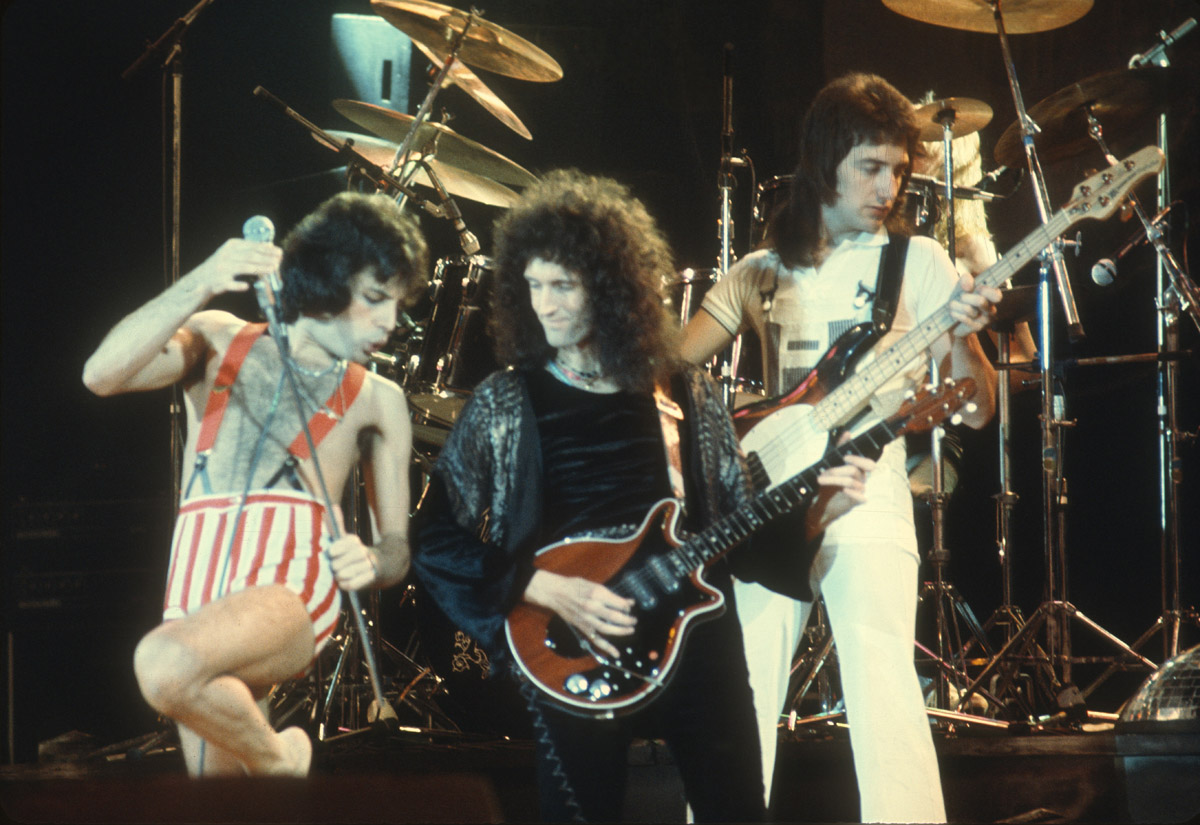
What do you remember about the recording of Bohemian Rhapsody and how you created the solo for it?
“This track had been evolving for a while. It was very much the product of the fevered brow of Freddie. We knew it was something very special. It was recorded in pieces, as I think everybody knows. We would rehearse and record. We’d do it until we got it right. The various bits were put together.
All the latest guitar news, interviews, lessons, reviews, deals and more, direct to your inbox!
“Freddie put a guide vocal on, and then we started doing all the multi-tracked vocal harmonies There was already a rhythm guitar on there, of course. And somewhere during that process we talked about where there would be a solo, and that part of it Freddie hadn’t mapped out.
“He said he wanted a solo in there, and I said I would like to effectively sing a verse on the guitar. I would like to take it somewhere else. I would inject a different melody. There was already a lot of colour in there, but I would like to have a free hand. And I could hear something in my head at that point – long before I went in there and played it.“
As you’re remembering this, can you picture you all in the studio? It’s funny, because you see this in the Bohemian Rhapsody film.
“It’s quite faithfully reproduced, the way the Brian May character says, ‘Okay, how about this?’ And Freddie’s going, ‘Oh, lovely – but can you try a bit more of this?’“
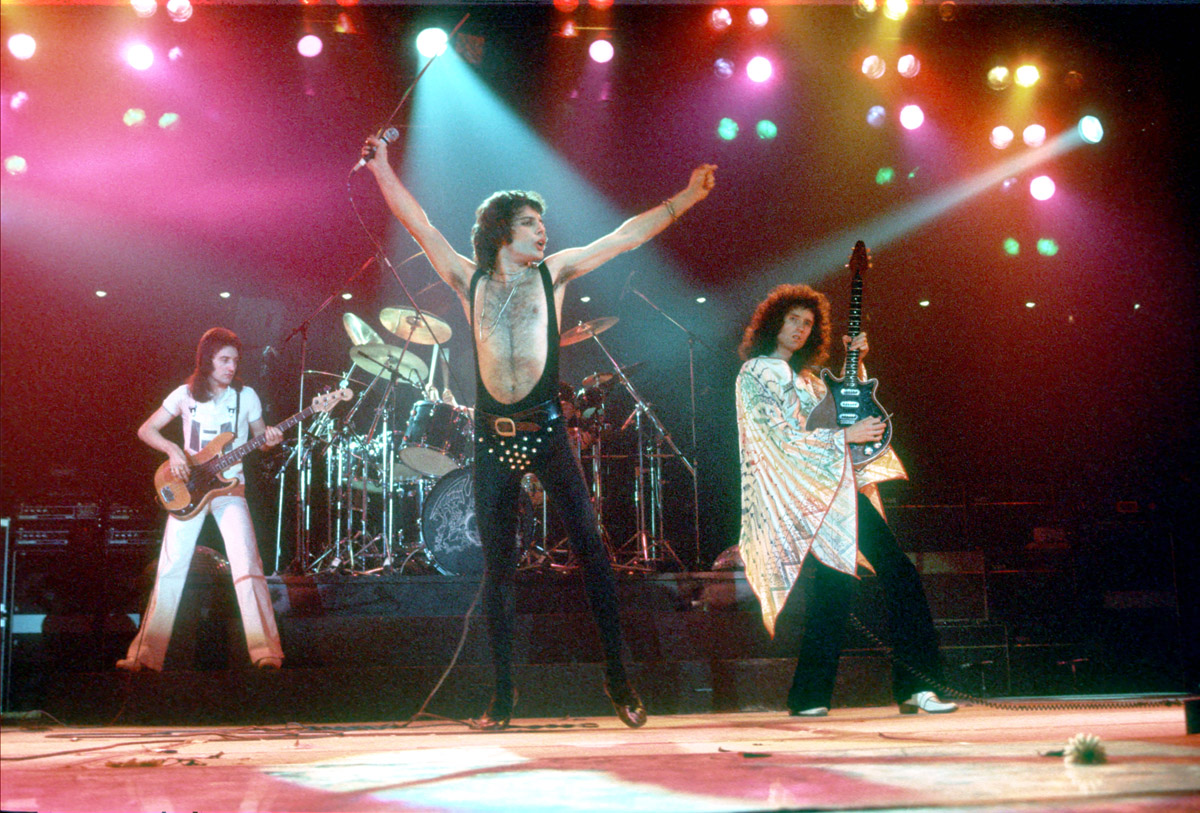
And the idea you had in your head – was that exactly how the solo came out?
“Yeah. I basically sang it. I regard the guitar in that situation as a voice. I could hear this melody and I had no idea where it came from. That melody isn’t anywhere else in the song, but it’s on a familiar chord sequence, so it dovetails in quite nicely. And of course the job of the guitar solo is to bring that extra voice in, but then it’s a link into what everybody now calls ‘the operatic section’. You know you’re into something very different.“
Did the solo require multiple takes?
“It came out very easily. I didn’t do many takes. It was one of those occasions where you do a few takes and then you go back and listen to the first one and the first one is almost exactly what you want. You just need to trim it a little bit and polish it up.“
And the climax of the song is very heavy on guitar.
“The bit where everybody does the head-banging? That’s just riffing, and that was much more Freddie’s idea than mine. He had that riff in his head and I just played what he wanted there. I think he just sang it to me, what he wanted. We went for it live in the studio.“
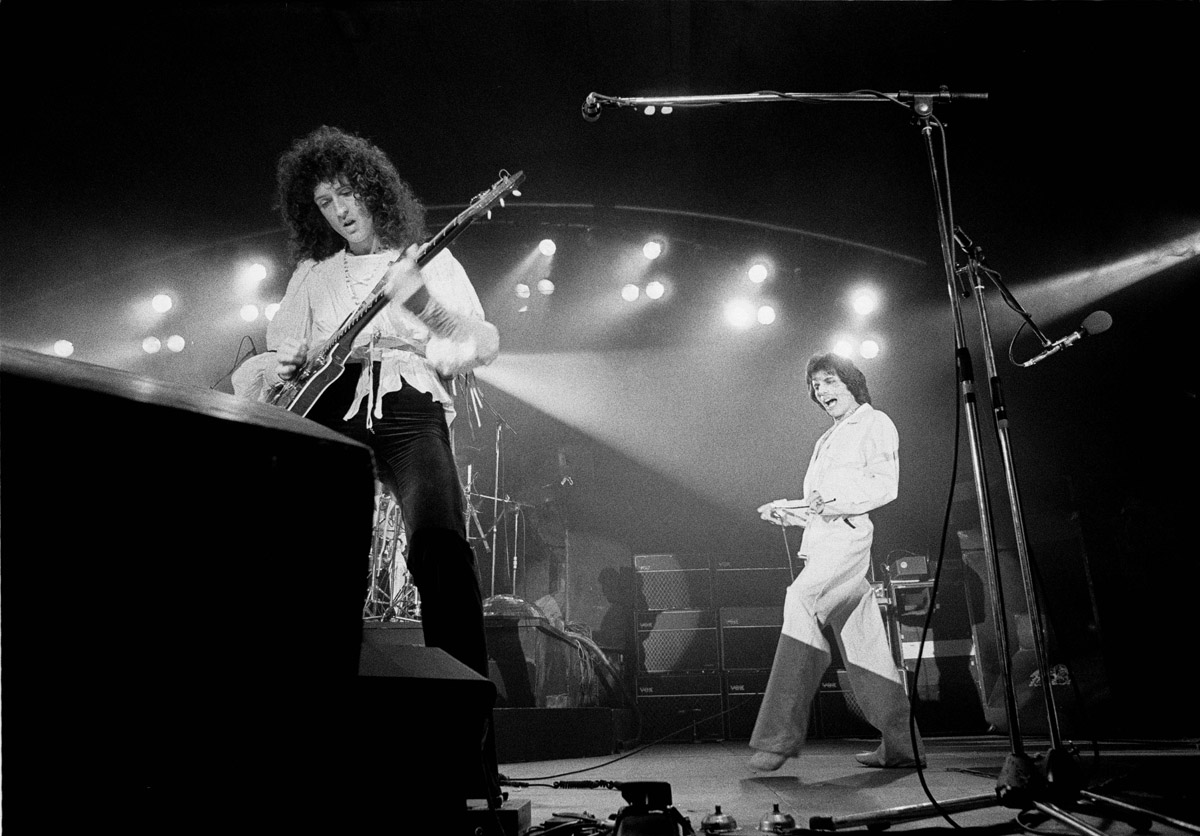
The different tones in that song, from the clean sounds in the solo to the distortion in the heavy part – how did that work?
“It’s all about Vox AC30s and the treble booster – which was all inspired by Rory Gallagher. There’s really very little else on my guitar. There are no effects boxes as a rule. I used delays and stuff, but the fundamental tone that you hear is the guitar and the treble booster and the AC30. And the AC30 gives it that incredible throat, which is variable.
“The more you turn it up the more it goes into saturation. It doesn’t distort that much, and you’re still in the position at about nine and a half where you can still play chords and they still sound like chords. It doesn’t sound like a big fart [laughs].“
Even if you have three pickups on a guitar – which frequently you do, on Fenders and all sorts of guitars – you generally don’t get the option of what I do
“So it’s a unique thing and we know why that is now, because the AC30 is fundamentally a class A amplifier, and because of the way the valves are used, they’re biased half way up, they don’t distort until you drive them very, very hard, and then they go smoothly into that distortion. So that’s the whole thing. I get so used to that being the way that the guitar speaks, I take it for granted.“
So when you play Bohemian Rhapsody live, have you got one tone dialed in, or are you flipping the switches on the guitar?
“Well, there are so many bits and pieces in Bohemian Rhapsody that I used almost all of the tone settings. I remember thinking, ‘This is fun!’ I can use them all! So by the time you get to the end, I’ve been double tracking that and octaving it and using all the different tones, and you can hear it.
“There’s a lot of different changes in colour. And then there’s those little orchestral bits at the very end, very sweet bits, that’s a different sound again. The main solo is one of my favourite combinations of pickups which you don’t get on most guitars.
I have an option where I can have the fingerboard pickup and the middle pickup in series but out of phase… all you’re left with is all those harmonics the high stuff, and that’s what I use for the solo
“Even if you have three pickups on a guitar – which frequently you do, on Fenders and all sorts of guitars – you generally don’t get the option of what I do. I have an option where I can have the fingerboard pickup and the middle pickup in series but out of phase. And in that setting almost everything cancels out, and all you’re left with is all those harmonics the high stuff, and that’s what I use for the solo. It screams.
“Even at low volume it screams at you. And if you turn it up really high it gets this kind of milky... I don’t know if I can even describe it. It’s a kind of saturation that only happens at the very high frequencies, so it’s a pretty piercing sound, but it also has a strange kind of warmth that doesn’t distort.
“So that’s what I used for the solo, and I’ve used it every time. And every time I go into that setting it does that thing, it makes the harmonics leap put and it kind of makes me think of the Bohemian Rhapsody solo as soon as I do that.“
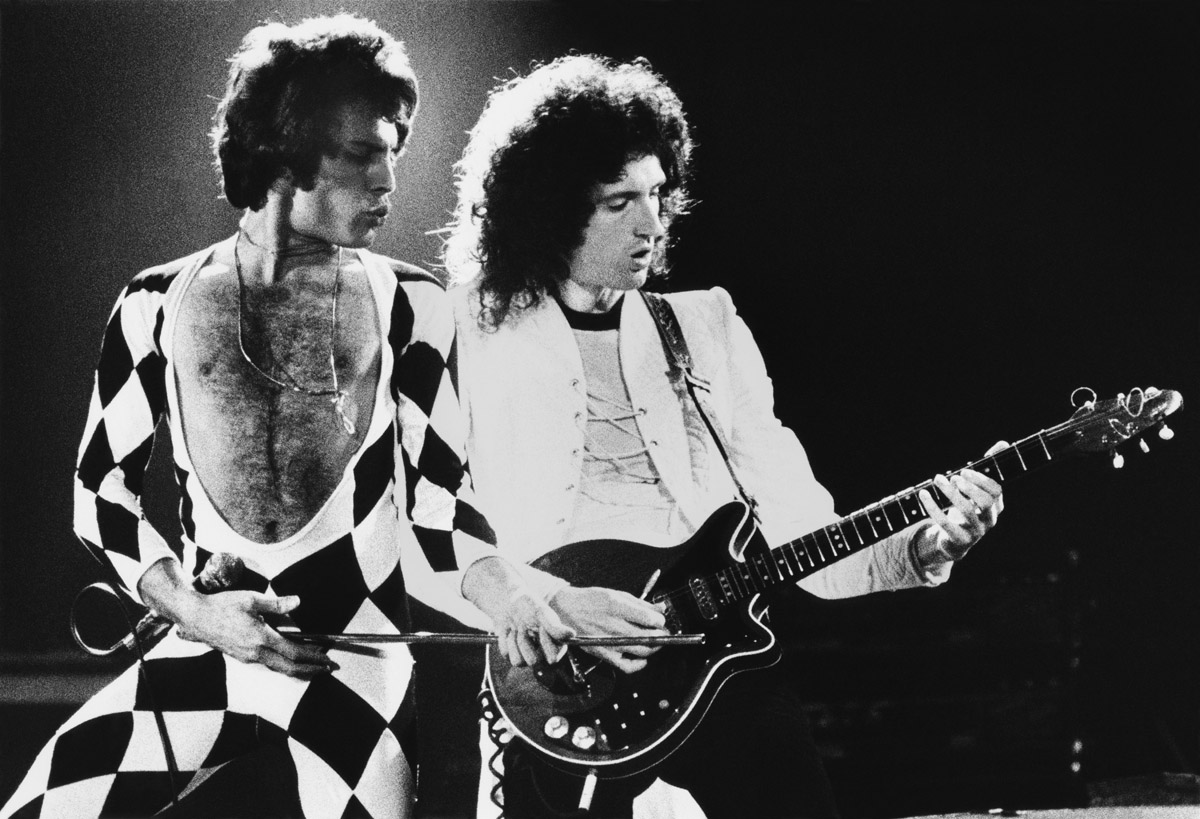
There’s something about the tone of that solo, maybe the way you pick or the metal picks you use?
“The pick has a little bit to do with it, definitely. It all adds up that incisive tone. These days I’m using the pick less and less, and I find that I can get all of that range of sound using the fingers. It’s odd. I don’t know what that is, even. Maybe because I play more and more at home, and there isn’t always a pick to hand, you just end up using fingers.“
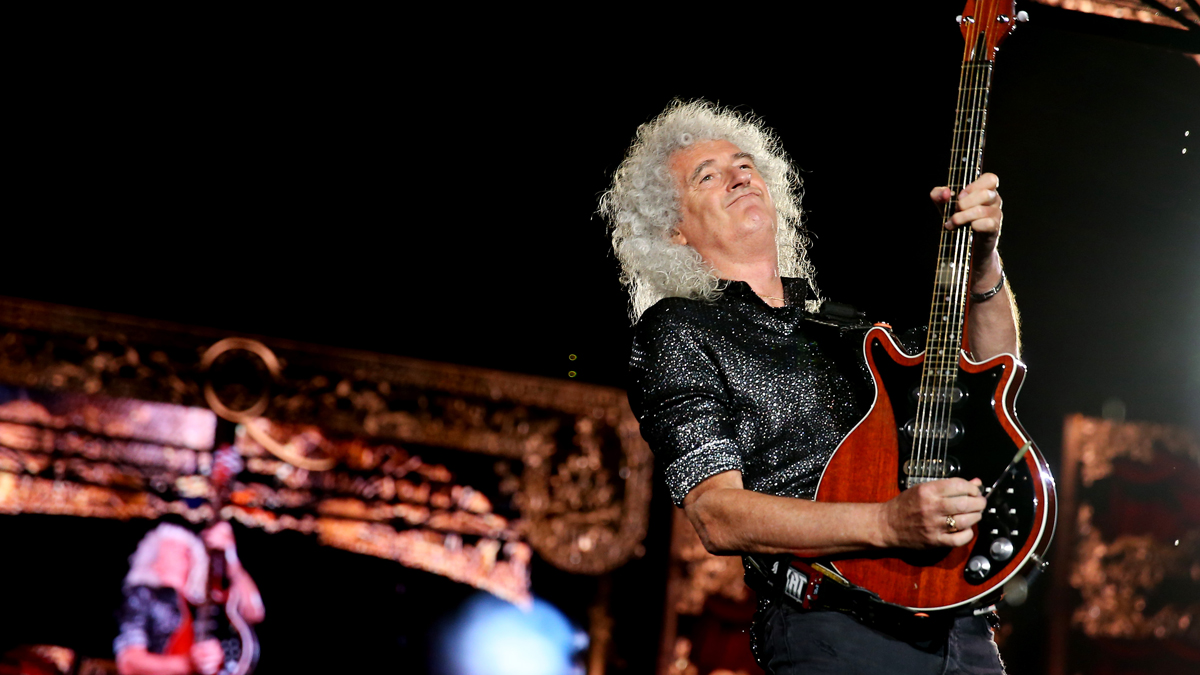
• Brian May’s guitar gear: how to sound like the iconic Queen guitarist
“But I also find I get more expression out of the fingers these days, and I like it that way. Probably live I’ll never do that, because live, people want to hear it the way it was on the record. But it’s always slightly different every night. Although I’m playing that solo almost note for note, it always comes out differently, because of the different feelings going through my head or the fingers falling in different places...
“But that’s the closest to a set piece that I have, I suppose. It’s also usually the place in the show where I’m coming out of a hole in the ground with lots of smoke and being very dramatic, and having changed frocks, you know? That solo is a nice place to get theatrical. And on the last tour, a friend of mine, the cyborg – what people started to call the Bri-bog – he did that solo under my tuition.“
Bohemian Rhapsody was Freddie’s masterpiece, so did that make it more of a challenge for you to create that solo?
“There was a lot of interaction, and I think that was part of the magic that we had. We gave each other a lot of stick, really, but in a very positive way. We were always pushing each other to try things.
“You know, one day Freddie had a big smile on his face when I came into the studio and he popped a cassette into the player and said, ‘Listen to this, darling. This is going to surprise you.’ And what he’d done was spend the whole morning putting together all the guitar solos that he could find in the work that we’d done, and he’d strung them all together.
“It was quite amazing. And one of my big regrets is I can’t find that cassette. I never throw anything away. I’m a bit of a hoarder. So it ought to be somewhere. But Freddie was very proud of the stuff that I’d done and that we’d done together.“
In all of those solos, is there one that’s a personal favourite?
I grew up with Clapton and obviously Jimi Hendrix, and The Who, and it’s all in there. You can hear it in me, definitely. And Django Rheinhardt, strangely enough
“Killer Queen has always been a favourite of mine. And again, that was always in my head. It was something a bit more complex, an adventure in putting guitar harmonies into the solo. It was quite a step into the unknown, that solo, and it has a melody that I put in there which doesn’t appear anywhere else in the song, so in a sense they’re quite comparable, that and Bohemian Rhapsody.“
The solo in Crazy Little Thing Called Love is another of your best.
“That one is a really a pastiche of James Burton. James was my hero and I’m happy to say he’s become a friend now. And his solo on Hello Mary Lou, the Rick Nelson record, was massively influential on me. And the solo in Now I’m Here? That has a lot to do with The Who, Pete Townshend, and Mott The Hoople, who of course figure in the lyrics to the song and inspired the whole thing.“
Were these influences you were conscious of when you created these songs?
“No, I think it’s all in there unconsciously. But I know it’s all in there, the same as there’s lot of other stuff in there. All those wonderful arrangements that The Temperance Seven did, that’s all in there unconsciously and I know that I draw on that. But I grew up with Clapton and obviously Jimi Hendrix, and The Who, and it’s all in there.
“You can hear it in me, definitely. And Django Rheinhardt, strangely enough. When I was growing up there wasn’t a lot of guitar music on record. James Burton was the first time I heard anyone bending strings like that. And that’s all in me too. And I take great pleasure in telling James Burton what he did for me.“
What is the hallmark of your best solos?
Killer Queen worked out so nice. I would probably put that forward as the one that perhaps I would want people to remember me by
“I suppose it’s the ones that become orchestras. My dream was to use the guitar as an orchestra instrument, and I was lucky enough to make the dream come true. The Killer Queen solo was the first time I really managed to get the harmony thing across, and all those harmonies move about, they’re not just following each other parallel – they all interact like a small jazz band would do.
“I took it further on Good Company. I actually got into emulating a complete jazz band on that. But with Killer Queen, it worked out so nice. I would probably put that forward as the one that perhaps I would want people to remember me by. And can I offer one more thing – my favourite guitar solo of all time?“

• Top artist-endorsed guitars from Brian May, Steve Vai, EVH and more
Go on!
“It’s Clapton, Key To Love, from the John Mayall’s Blues Breakers album. It’s the hottest burning high-passion piece I’ve ever heard in my life – still to this day. I just love it. It totally rips, and I’ll never get over that. That’s one of my great inspirations.“
The tone in that solo is incendiary...
“Incendiary is a good word, yes. He burned in that solo! The whole track revolves around that solo. Every time I put it on, I’m just waiting... John Mayall’s great, but you’re waiting for that moment when Eric rips out and suddenly he’s whacking into those top notes. It’s incredible. Absolutely spine-chilling.“
Chris was Editor of Total Guitar magazine from 2020 until its closure in 2024, when he became Lesson Editor for Guitar World, MusicRadar and Guitar Player. Prior to taking over as Editor, he helmed Total Guitar's world-class tab and tuition section for 12 years, helping thousands of guitarists learn how to play the instrument. A former guitar teacher, Chris trained at the Academy of Contemporary Music (ACM) in Guildford, UK, and held a degree in Philosophy & Popular Music. During his career, Chris interviewed guitar legends including Brian May and Jimmy Page, while championing new artists such as Yungblud and Nova Twins. Chris was diagnosed with Stage 4 cancer in April 2024 and died in May 2025.
